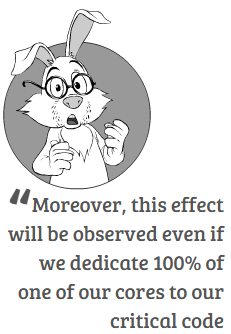C++ for Games: Performance, Allocations and Data Locality -- Sergey Ignatchenko
 Well-illustrated, and well-illustrated, gems:
Well-illustrated, and well-illustrated, gems:
C++ for Games: Performance, Allocations and Data Locality
by Sergey Ignatchenko
From the draft chapter:
One further thing to keep in mind with regards to 90-10 (or 70-30) rule is that even if only performance of 10% of the code matters, the rest of the code can still affect performance of critical 10% in a Pretty Bad Way :-( ...


 Some tried-and-true, well-illustrated and entertaining tips:
Some tried-and-true, well-illustrated and entertaining tips: News from Visual Studio:
News from Visual Studio: Have you registered for CppCon 2016 in September? Don’t delay –
Have you registered for CppCon 2016 in September? Don’t delay –  Have you registered for CppCon 2016 in September? Don’t delay –
Have you registered for CppCon 2016 in September? Don’t delay –